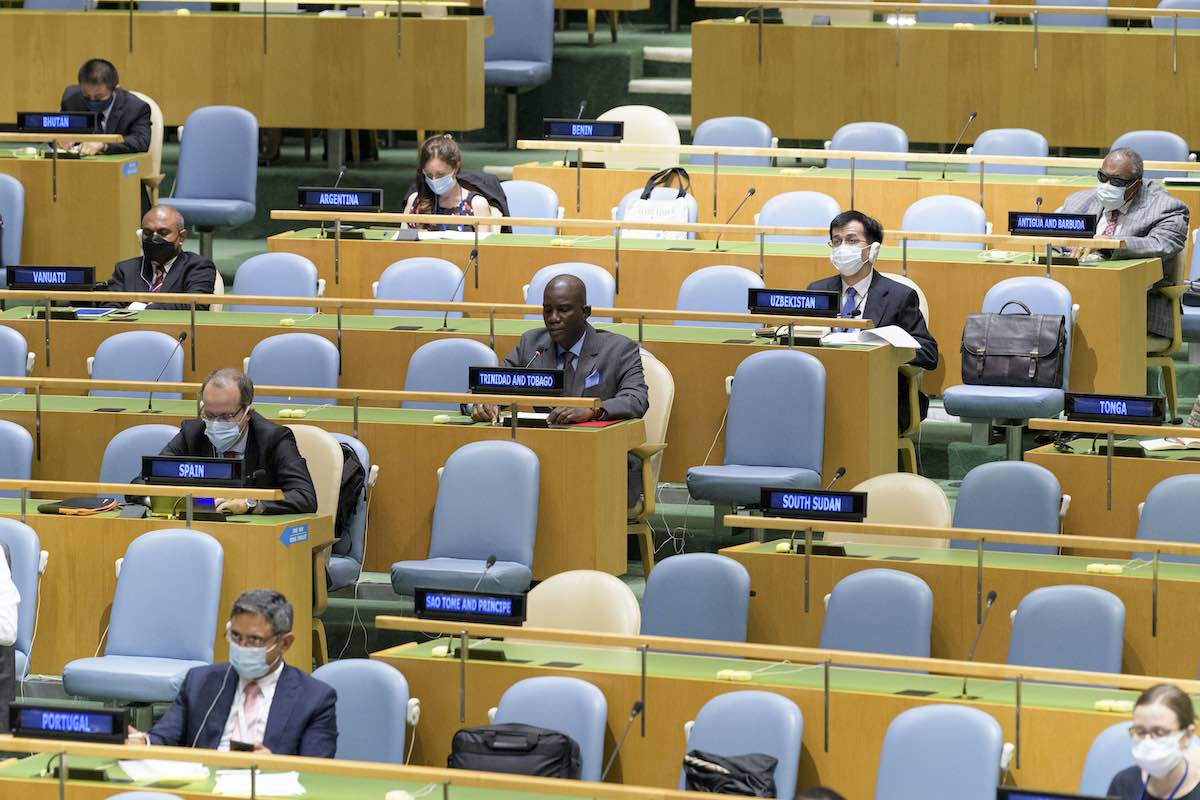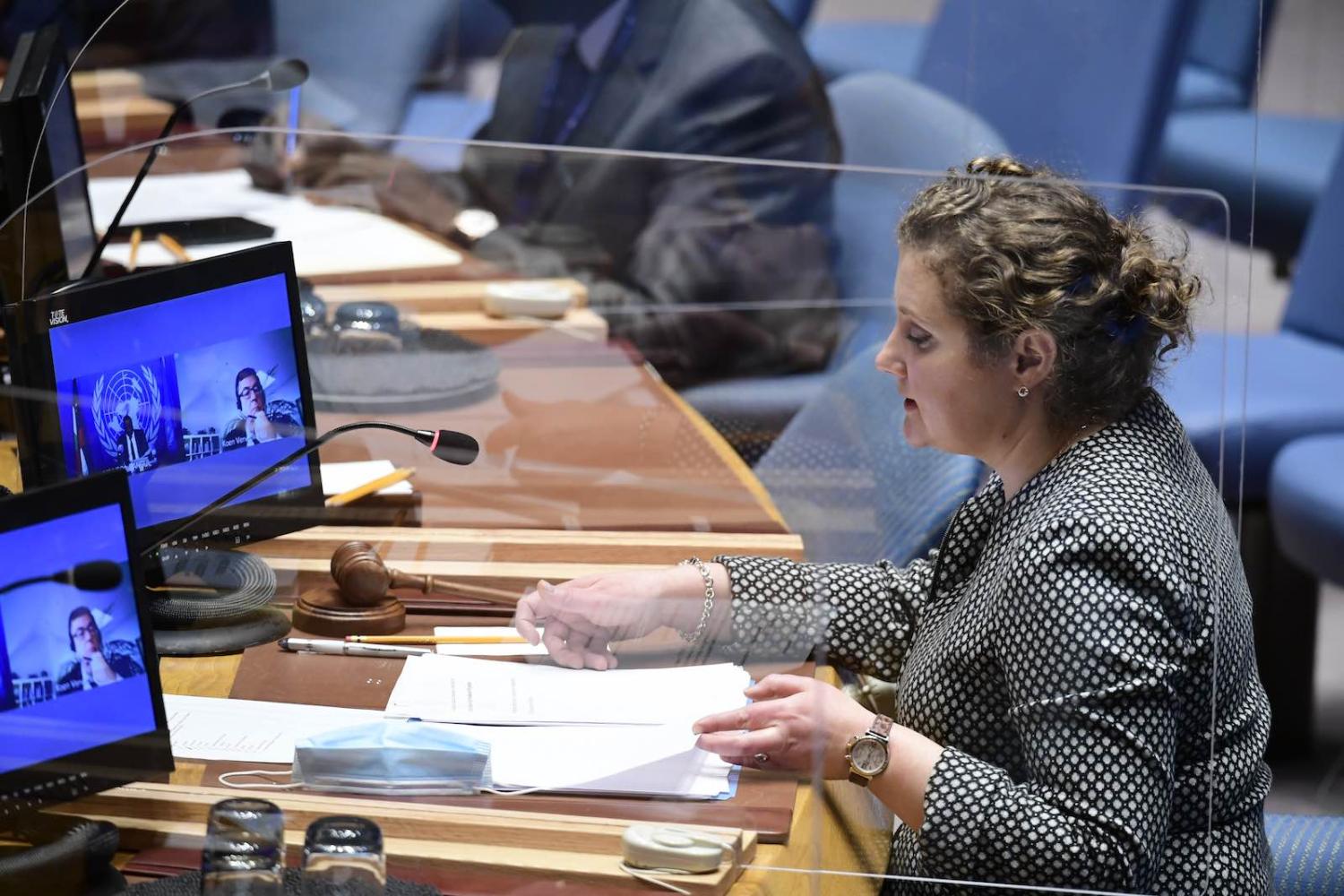The 75th United Nations General Assembly held last month was unique. The media spectacle of leaders’ speeches gave way to resident diplomat introductions, pre-recorded video presentations, and videoconferences. For some, the unspectacular and even boring nature of the General Assembly’s high-level week suggested that videoconference diplomacy will come to an end with Covid-19. But there are strong arguments to suggest the world’s worst Zoom meeting may not be the last of its kind.
Innovation in diplomacy has three criteria: recognised need, technological and/or social transformation and human resources to exploit it, and financial support. The evolution of diplomacy has been marked by these three criteria combining to transform and update diplomatic practice.
The 20th century saw summit diplomacy, shuttle diplomacy and hotline diplomacy become mainstream diplomatic processes. Each change resulted from a recognised need to streamline and increase the speed of diplomacy in face of intensifying of what military jargon dubs as the observe–orient–decide–act cycles in modern warfare. Essentially, technological innovation in ballistic missiles and nuclear weapons superseded the time needed for protracted diplomatic communication.
Diplomacy had to change. Changes in transportation and communications technology and the financial support to provide for it, allowed diplomacy to catch up – albeit at a cost. The representative role of the resident ambassador changed to less of an envoy who acts on behalf of the executive (entering into legal agreements and/or committing the state to action) to one who predominantly stands in for the executive (demonstrating the power, prestige and influence of the sending state). The ambassador’s foreign decision-making role decreased, and the public diplomacy/political role increased. Indeed, stemming from these now dated innovations, the ambassador’s role continues to transform.

We are again in a period of recognised need. Covid-19 has disrupted and distorted diplomacy. In the early stages, it disrupted practices (and the lives of diplomats) and threatened to distort the very fabric of resident representation. The sense of crisis in the Covid-19 pandemic precipitated a sense of need in foreign ministries to rapidly adapt to long-standing, yet not exploited communication technologies, such as videoconferencing. But “Zoomplomacy” was never going to be enough. States are now committing financial resources to build infrastructure to sustain videoconference diplomacy with task-specific adaptability, national control and security.
Preparations are also being made for the next step. Several countries recognise that the digital diplomacy revolution is more than communication technologies, and are exploring how 3-D gaming, deep learning, machine thinking, artificial intelligence and robotics will impact diplomacy.
To imagine that the changes underway will disappear with Covid-19 is to imagine that academic travel budgets will return, online shopping will be discarded, and work from home will end.
Concept developers are already working on replacing the much-criticised Zoom diplomacy conference with what the tech world knows as open-world/sandbox gaming, which would allow diplomats to attend conferences and maintain real life/virtual characteristics of trust and reputation, hold secure, private conversations, undertake corridor diplomacy, and schedule media interviews on the conference sidelines. Such gaming technologies promise to integrate and improve on earlier conceptualisations of diplomacy in the digital environment, such as “Diplomacy Island” on Second Life. As computer processing power and graphics capacities increase, and open-world gaming becomes more accessible, more and more diplomatic applications will emerge.
The criticisms of videoconference diplomacy and whatever follows it are many – but no more than Lord Palmerston, the British Foreign Secretary, who on receiving the first-ever telegraph message on his desk in the 1840s, is reported to have declared it the end of diplomacy. The criticism of the telegraph’s instant communication and the threatened end to the calm, thoughtful and discreet deliberation that marked 19th-century diplomacy, was soon forgotten as new skills, new practices and new diplomats came to fill the gaps in an ever-evolving profession.
So will diplomacy change again – multilateral diplomacy in particular. Fly-in/fly-out missions such as the UN General Assembly will become less common.
There are several reasons to support this claim. First, multilateral diplomacy has come under increasing criticism regarding waste, imbalance, inefficiency and corruption, leading to an increased unwillingness to apportion budgets to multilateral diplomacy. Second, as a result of the Covid-19 pandemic, foreign ministry budgets over the next five years will be particularly tight. Finally, the irony of organisations dedicated to addressing the causes of climate change and doing little to change their own inefficient, airplane-contrail-exacerbating practices is not lost on those criticising multilateral diplomacy.
Videoconference diplomacy will not go away. It will at first rest side-by-side with fly-in/fly-out missions. With time, it will replace them. To imagine that the changes underway will disappear with Covid-19 is to imagine that academic travel budgets will return, online shopping will be discarded, and work from home will end. There are already clear signs that we are already in the new normal.
The criteria for innovation in diplomacy is here. Covid-19 has provided a recognised need. The technological and/or social transformation and human resources to exploit it are now in place, and the financial support is coming. A less-than-spectacular UN General Assembly and an overwhelmingly boring week of leaders’ speeches will not stop diplomacy’s evolution.
